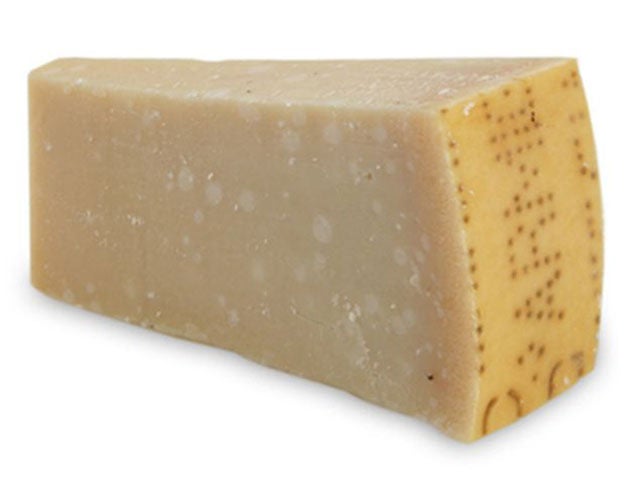Rome stages big cheese bailout for Parmesan

Your support helps us to tell the story
From reproductive rights to climate change to Big Tech, The Independent is on the ground when the story is developing. Whether it's investigating the financials of Elon Musk's pro-Trump PAC or producing our latest documentary, 'The A Word', which shines a light on the American women fighting for reproductive rights, we know how important it is to parse out the facts from the messaging.
At such a critical moment in US history, we need reporters on the ground. Your donation allows us to keep sending journalists to speak to both sides of the story.
The Independent is trusted by Americans across the entire political spectrum. And unlike many other quality news outlets, we choose not to lock Americans out of our reporting and analysis with paywalls. We believe quality journalism should be available to everyone, paid for by those who can afford it.
Your support makes all the difference.Parmigiano Reggiano, Italy's King of Cheese, is in trouble. Robust in flavour and crumbly, it is a classic of Italy's artisan food traditions, made by hand by 430 craft producers around the city of Parma. But with Italian consumption falling as costs soar, almost a third of producers now face bankruptcy. Now Italy's Minister of Agriculture, Luca Zaia, has come to the rescue, promising to buy 100,000 Parmigiano Reggiano cheeses, and also 100,000 of its less costly competitor, Grana Padano.
This is Italy's big cheese bailout. Essentially, the government will be gobbling up 3 per cent of Parmesan production at an estimated cost of €50m (£44.7m) and distributing it to the needy. Each 35kg wheel of Parmigiano costs between €8 and €8.50 to make, but the wholesale price has declined for the past four years even as the cost of milk and energy has soared.
"We just need a bit of time to reorganise ourselves," said Giorgio Apostoli of Coldiretti, Italy's agriculture lobby. "This is a historic product with an ancient tradition. There ought to be policies to safeguard those who produce it."
But Professor Giuliano Noci, of the Milan Polytechnic, said a better solution would be for the government to "launch a sustained marketing campaign in the emerging markets such as Brazil, Russia and India, to educate consumers to appreciate the quality" of the cheese.
Join our commenting forum
Join thought-provoking conversations, follow other Independent readers and see their replies
Comments